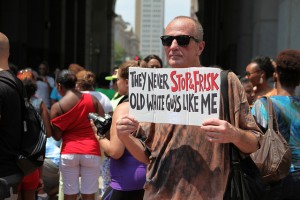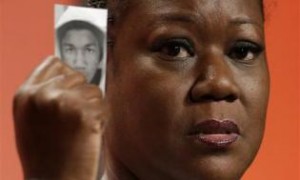Stop and Frisk Laws Based on Racial Stereotypes

Stop and Frisk Laws Based on Racial Stereotypes
By Janice S. Ellis
Stop and Frisk laws based on racial stereotypes are being challenged because they disproportionately target blacks and Hispanics who most often are not guilty of committing any crime.
According to recent facts about the stops made by the New York Police Department during the last decade, about 5 million people have been stopped, questioned and/or patted down. More than 87% were black or Hispanic. But only about 10 percent of those stops resulted in an arrest or summons. And there were even fewer incidents where police actually found any weapons.
Even though a judged has ruled that the policy practiced by the New York Police constitutes racial discrimination, Mayor Bloomberg, and Police Commissioner Raymond Kelly are defending the use of stop and frisk and are vowing to appeal the ruling. They vehemently claim that violent crimes will increase if the City if forced to stop the practice.
The mother of Trayvon Martin is speaking out against stop-and-frisk laws and the police practice in New York City and other cities, saying neither police nor civilians have the right to stop someone because of their race. “You can’t give people the authority, whether civilian or police officers the right to just stop somebody because of the color of their skin,” Martin’s mother, Sybrina Fulton said on NBC’s “Meet the Press.”
In an appearance on CBS’ “Face the Nation, Commissioner Kelly claimed, “The losers in this, if this case is allowed to stand, are people who live in minority communities.”

Stop and Frisk laws are based on racial stereotypes. Trayvon Martin’s mother vow to fight them. Photo Credit: newsone.com
The “Stop-and-Frisk” laws can really be seen as another facet of a Justice System that continues discriminates against minorities, particularly blacks when it comes to stops, arrest and convictions. Unfortunately, many young black men and black teens are subjected to stereotypes and profiles that do not apply to them just because they look at certain way or deemed to be in a store or neighborhood where they do not belong.
This year marks the 50th Anniversary of the fight for many rights for blacks, from the right to vote to the right to have equal access to jobs, education, and equal justice under the law. From being stopped simply based on suspicion, to being arrested more often than whites for the same violations, to being sentenced to longer jail or prison terms than whites for the same verdict, there is a lot to be done to correct the new Jim Crow in all of its forms.
Featured Photo Credit: flickr.com
